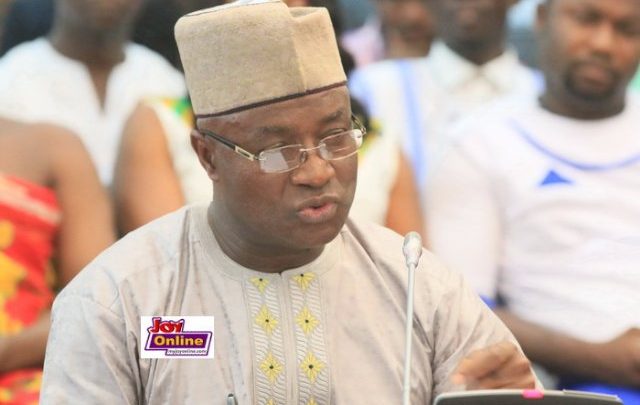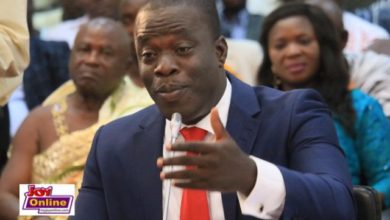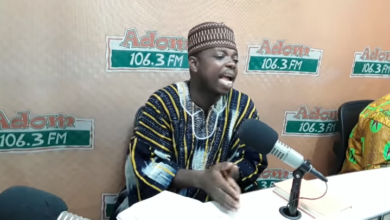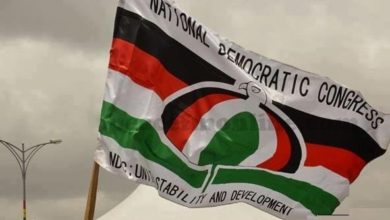Majority Leader refutes perception that executive is controlling parliament

Majority Leader, Mr Osei Kyei-Mensah-Bonsu, has dispelled the notion that the appointment of the Minister for Parliamentary Affairs by the Executive reinforces the perception of a culture of executive dominance over the legislature.
According to the Majority Leader who is also the Minister for Parliamentary Affairs, this may seem so on the face value, however, just a little perusal beneath the surface, would reveal the essential role the ministry plays in the country’s democracy.
Mr Kyei-Mensah-Bonsu made the observation at a seminar on strengthening the oversight role of Parliament for Accountable Governance in Ghana – The role of the Ministry of Parliamentary Affairs.
The meeting was attended by the leadership of Parliament as well as chairmen and ranking members of the various Committees of the House.
The concept of Ministry of Parliamentary Affairs existed in many forms in other Commonwealth Jurisdiction particularly India, Sri Lanka and Pakistan.
Mr Kyei-Mensah-Bonsu also explained that the mandate of the Ministry of Parliamentary Affairs was to interface between the Executive and the legislature to enhance governance in the country.
He said the Ministry as part of its function was to interface between the Executive and Parliament to enhance the delivery of government business.
He said the Ministry was also to facilitate the development and implementation of citizens centred collaborative interface with other state actors on matters relating to legislation.
The Majority Leader also stated that the Ministry would enhance the democratic process to guarantee good governance through dialogue, consensus building in the organs of government, state and non-state actors for the economic development of Ghana.
He said the vision was to promote consensus building among and within the political class in a purposed, transparent and accountable manner to deepen and broaden inclusiveness in the country’s participatory democracy.
He said the Ministry’s unique role as part of the Executive would serve as tool for “Executive self-censoring” and are sensitive to the sensibilities of the polity and without pressure from any specific party or institution of authority.
Mr Haruna Iddrisu, the Minority Leader in his contribution stated that the exercise of Parliamentary oversight since 1993 up till now had remained the role of the Minority members of Parliament and explained that members of the majority party usually tend to support the government to succeed because they do not want their government to look bad and also wanting to catch the eye of the Executive to be considered for a position.
He said thus overtime the process of Parliamentary oversight has remained weak and impotent to exercise control over the Executive.
Mr Iddrisu also stated that a Speaker of Parliament as an impartial arbiter has role to play in the oversight responsibilities of the House over the executive.
He said the filing and admission of questions from executive by the Speaker is an important tool that the he could use to hold the executive accountable.
Dr Evans Aggrey Darkoh, Acting Chief Director of the Ministry for Parliamentary Affairs in his presentation stated that the governance goals of greater accountability, transparency and participation were inextricably intertwined with the three core functions of Parliament, thus law making, representation and oversight.
He said legislative oversight in particular sought to ensure that the executive and its agencies and those who wield delegated authority, remain highly responsive and accountable.
He said the Ministry had been strategically positioned to serve as an interface between the executive and the legislature was working diligently to enhance representative democracy processes to guarantee good governance through dialogue and consensus building for the development of the country.
Dr Agrey Darkoh also highlighted five priority areas that the ministry would focus on including; enhancing good governance through improving relationship between the executive and the legislature.
He said the ministry was aimed at deepening political and administrative decentralisation by harmonising the relationship between Members of Parliament and Metropolitan, Municipal and District Chief Executives.
He said the ministry would promote the fight against corruption by supporting the strengthening of the oversight functions of Parliament, improving the participation of civil society in shaping public policies and programmes as well as demystify the perception of executive dominance through fostering of effective collaboration between the executive and the legislature.
Source: Myjoyonline






The International Trade Administration records the amount of workers and the value of shipments of each manufacturing industry in the United States of America buy cialis online 20mg November 17, 2017 September 16, 2019